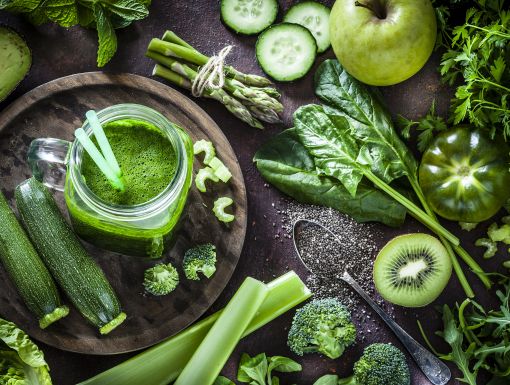
7 Healthy Drinks That Improve Digestion in 2026
Whether it’s a full meal or simply a light snack, we want to ensure that our food is digested effectively. And as research continues to confirm, the healthier our gut, the better we feel, look and perform.
To improve your digestive health, consider adding one or more of the following healthy drinks to your diet.
Kombucha
Made by fermenting yeasts and bacteria with sweetened tea, kombucha is a refreshing, lightly carbonated drink that's rich in probiotics.
Probiotics are healthy live bacteria that help the gut to run smoothly. The health benefits of probiotics are many; they help to boost the immune system, improve blood sugar, reduce inflammation and improving overall gut and digestive health.
Ginger Tea
Drinking warm ginger tea just before or during a big meal may improve digestive health and prevent heartburn, stomachache and indigestion. This is because the root stimulates saliva flow, bile and gastric juice production, which jump starts the breakdown of the food you eat.
Lemongrass Tea
In addition to being wonderfully tasty, lemongrass tea has been shown to help soothe the stomach and keep digestive functions in check. Used as an ancient Chinese medicine remedy to help decrease symptoms in certain stomach issues such as bloating and constipation, lemongrass contains a compound called citral which provides anti-inflammatory benefits. It’s also caffeine-free, making it an ideal after-dinner beverage or sleepy time tea.
Peppermint tea
Native to Europe and Asia, peppermint has been used for thousands of years for its pleasant, minty taste and health benefits. It contains natural chemicals that may help the digestive tract by reducing spasms in the gut, meaning your body is more relaxed and can more easily digest food after ingesting it. For this reason, it has also been found to be likely effective in treating irritable bowel syndrome (IBS).
Fennel tea
Packed with fiber, fennel may help relieve constipation and other digestive problems that cause gas, as well as keep things moving properly in the digestive tract, though research has shown insufficient evidence for this. To enjoy the therapeutic benefits of fennel, you can simply chew on the seeds, or make a tea by crushing them and pouring hot water over them.
Coffee
Your morning brew can help with more than providing you a much-needed energy boost. It may also act as a stimulant for your digestive tract. Functioning like a laxative, coffee gets things moving quickly in your gut. While coffee may help you time your daily bowel movement before you head out the door, you shouldn’t rely solely on it to help with digestion.
Consuming excessive amounts of caffeine may cause to diarrhea, which is not only uncomfortable, but may also prevent your body from absorbing certain nutrients. Too much caffeine has been shown to hinder sleep, so it is best to avoid drinking coffee after 3 p.m.
Pro tip: For additional protein and added health benefits, consider adding 10 grams of collagen powder to your morning cup of coffee. Collagen is a protein that plays an important role in the function of our skin, joints, ligaments and tendons, and it also helps promote gut health.
Water
Touted as nature’s digestive aid, water is a major component of every single cell that lines your digestive tract, meaning you need plenty of it for those cells to function. Water also keeps tissues in your digestive tract pliable while creating an environment that allows food to easily pass.
Be sure to drink the right amount for your body type. To determine your total daily fluid intake, divide your weight (in pounds) by two, and that's approximately how many ounces of fluid you need daily. Add an additional 16 ounces for every pound of sweat lost during exercise or work outdoors in hot temperatures.
For additional therapeutic effects, add a squeeze of lemon in your water or unsweetened tea. This citrus is used as a digestive aid, an anti-inflammatory and a diuretic.
Furthermore, drink your daily recommended amount of water, especially when consuming foods high in fiber to prevent constipation. Fiber not only helps regulate bowel movements throughout the day, it also helps us feel fuller, longer.
Disclaimer: As consuming herbs can lead to unexpected interactions with certain medications, consult with your doctor before adding them to your diet.
Learn other ways to improve your digestive health and overall nutrition by making an appointment with one of our registered dietitians.


